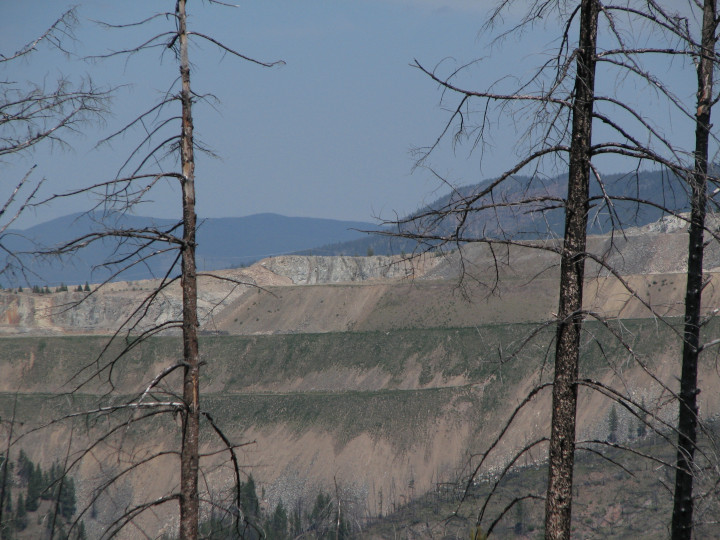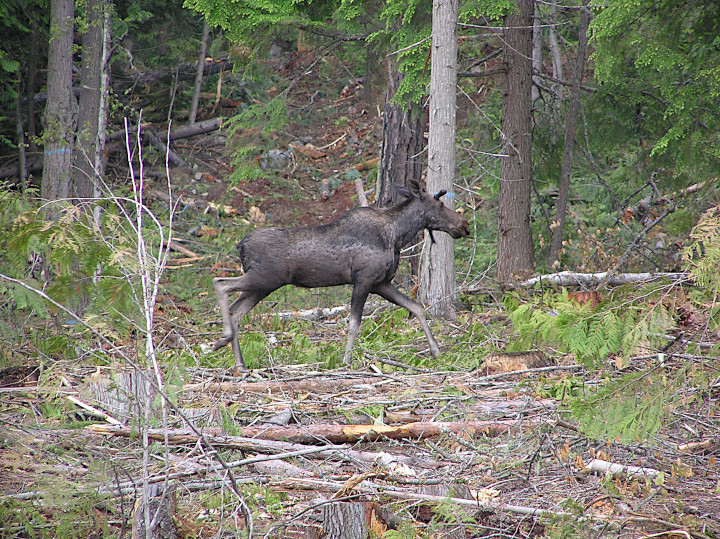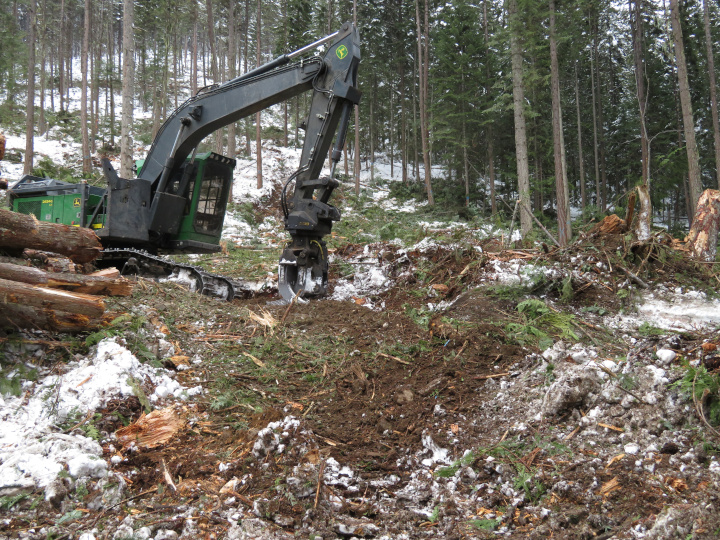
Nature, science, language, values, feral beliefs...
Entries for January 2024

Anthropocentrism and Nature
One important aspect of scientific
enquiry is that it can often recognise
anthropocentrism and attempt to avoid its misleading
effects. (In contrast, most technologies largely
reflect and amplify an anthropocentric view of the
world.) That is one reason why I suggested that a
scientific approach is so important for understanding
nature. In order to learn more about nature's
complexity, people first need to learn how to overcome
their tendency toward anthropocentric thinking.
From an early age, humans are surrounded with images and animations of anthropomorphised creatures - everything from friendly bears to talking ants to scheming plants. As people grow older, most eventually realise that other species are not actually quasi-humans in disguise. (But some adults do still try to feed the "friendly" bears.) Some works of fiction even portray computers as essentially human characters in a sort of techno-literary bait-and-switch for consumers hooked on suspension of disbelief. Anthropomorphism is everywhere and profitable.
Other species that "think", do not think like humans. (It seems to me that we should be very glad that is the case: one of the reassuring wonders of nature is that it is not just more variations on humanity.) Most species do not "think" at all in the sense that the word, when applied to humans, means. Our use of language predisposes us to expect anthropomorphism in other species. When speaking of changing forms in plant evolution, a scientist may casually say, "during this time, ancient species were experimenting with many different forms and strategies". That scientist undoubtedly knows those plants did not really have "strategies" or do "experiments". But many other people who hear or read such statements will not understand why not.
Even beyond anthropocentrism and anthropomorphism there seems to be a deeper existential issue: can humans transcend our current operational definition of humanity? By that I mean, could we escape the simple stories we have told ourselves about our place in nature and reality? Maybe that sounds a tiny bit grandiose, given the current global situation, but nature doesn't listen to our stories. And nature seems to be more important to us than we are to it.
From an early age, humans are surrounded with images and animations of anthropomorphised creatures - everything from friendly bears to talking ants to scheming plants. As people grow older, most eventually realise that other species are not actually quasi-humans in disguise. (But some adults do still try to feed the "friendly" bears.) Some works of fiction even portray computers as essentially human characters in a sort of techno-literary bait-and-switch for consumers hooked on suspension of disbelief. Anthropomorphism is everywhere and profitable.
Other species that "think", do not think like humans. (It seems to me that we should be very glad that is the case: one of the reassuring wonders of nature is that it is not just more variations on humanity.) Most species do not "think" at all in the sense that the word, when applied to humans, means. Our use of language predisposes us to expect anthropomorphism in other species. When speaking of changing forms in plant evolution, a scientist may casually say, "during this time, ancient species were experimenting with many different forms and strategies". That scientist undoubtedly knows those plants did not really have "strategies" or do "experiments". But many other people who hear or read such statements will not understand why not.
Even beyond anthropocentrism and anthropomorphism there seems to be a deeper existential issue: can humans transcend our current operational definition of humanity? By that I mean, could we escape the simple stories we have told ourselves about our place in nature and reality? Maybe that sounds a tiny bit grandiose, given the current global situation, but nature doesn't listen to our stories. And nature seems to be more important to us than we are to it.

A Very Brief Aside About Understanding
As I said last week, I think some people are beginning to understand some of nature's processes in a scientific sense. For example, more is now known about the invisible role of mycorrhizal fungi in forest growth and health. Many complex and critical processes in nature - some involving microorganisms - are not visible to the unaided human eye. My position is that unless they are studied systematically (scientifically), these processes cannot be properly understood.
We seem to be living in a time of science denialism, where people eager to use the technological products of scientific investigations nevertheless identify as "anti-science" (usually with only a vague sense of what science involves). Different people seem to have significantly different definitions of "understanding". That can lead them to feel that they "know" things in "different ways" (and certainly for different reasons). Actual understanding requires evidence that has been tested, and necessarily remains subject to continued testing. Claims for "understanding" without such evidence and continued testing might enable people to feel satisfied, and convinced, but they won't actually know what they think they do.
Facts have to be consistent with all the many other facts that relate to them, and any inconsistencies that arise need to be resolved. It's a complex process. The structure and philosophical basis for scientific enquiry obviously can't be summarised in a few paragraphs. Some branches of science, like geology and astronomy, are not experimental like, say, chemistry, but theories and evidence are still methodically tested with continuing observations. Even trial and error can be a simple part of a broader scientific endeavor. Continuing to try the same action that results in errors would indeed be anti-scientific.

The Industrialisation of Our Perceptions
Last week I mentioned that our thoughts seem to be increasingly shaped by industrial surroundings in ways that results in "industrialised minds". There might be a better term, but I'm trying to consider at least some of the many ways our thought processes regarding nature are structured by our industrialised experiences. This might include everything from earth-sensing satellites to personal cameras. Cameras are a good example, whether phone cameras or something more sophisticated, because so many people have them and use them to take photographs of "nature". We might consider what such photographs show - and what the do not, or cannot, show.
Most photographs focus on a subject: perhaps a mountain, a lake, an animal, or a big tree. Cameras are used to produce images of framed objects, and can encourage people to see and think of things accordingly. If you try to take a photo without a major focal point it will likely seem uninteresting, or confusing. We are predisposed (partly thanks to cameras and such devices) to notice discrete objects and less likely to notice, or search for, processes. Of course, most processes in nature proceed very slowly by human standards and are not easily represented in photos, or even videos.
How much time during each day do people spend interacting with their phones, cars and other transport machinery, buildings and appliances? Industrial devices and their effects and requirements are a major part of modern human lives. Some people even occasionally describe their own thinking in terms of computer hardware - "I really need to upgrade my CPU". Any of our attempts to contemplate aspects of nature that don't account for our industrialised mindset will likely produce misleading results. I think this is much more than just another way to say that the concept of "nature" has had different meanings during different ages in human history and prehistory.
Perhaps it is paradoxical, but it seems that some prople are just beginning to understand some aspects of nature - in a scientific sense - at the point where nature is becoming significantly degraded. Learning how something used to work while eliminating parts of it is probably not the best strategy.

The Industrialisation of Our Minds
In most of North America, we live in highly industrialised environments that are becoming more industrialised all the time. Will we come to accept a world of (small) "Viewing Forests", where humans gather to gaze at "nature", and (larger) "Working Forests", where fewer and fewer humans use more and more machines to cut down more trees more quickly? That might "make sense" to those who would profit from such definitions. Unfortunately, with enough misinformation, it might also seem to "make sense" to people who definitely do not profit from that way of thinking. But, we have learned to think, "there are so many trees, and it would be a waste not to use them".
For some people, it "makes sense" to chip trees into pellets and ship them across oceans to countries where they are burned for fuel. These trees can be called a "renewable resource", perhaps even "green energy", and thereby convey some social credit in addition to monetary profit. As we attempt to think more deeply about nature, our minds are becoming more industrialised word-by-word, and phrase-by-phrase. Only a hundred years ago - a short fraction of the life of a forest - people did not routinely fly between continents for holidays, or drive long distances on roads spread all across North America, guided by smart phones.
The effects of industrialisation shape our thought processes and, as a result, a much greater proportion of our landscape than is commonly understood. Rural areas might not have factories and smoke stacks, but they have been significantly altered. The occasional sign on a rural highway announcing a "wildlife corridor" provides a hint of this. If people think about it at all, perhaps they assume that there is more and more nature the further one goes outside cities. Yet, even beyond the extensive impacts of industrial agriculture on what once was wilderness, there are pipe lines, power lines, logging operations, mining sites and exploration works, and helicopter access to remote areas that were previously undisturbed.
Mechanisation, automation, and a general sense of "growth" and "progress" is not just what we expect, it has become what our minds look forward to. Except for habitual doomers, most people seem to think that "progress" will continue (even if they are displeased by some aspects of it). "Progress" eliminated the North American buffalo - they were incompatible with an expanding industrial agricultural population that would go on to develop a craving for big burgers. Human "progress" throughout history and prehistory has eliminated many species on land and in the seas as consumption technology has adapted and evolved. Humans seem perplexed about how to interact with nature if they don't use it somehow.

Mistaking the Forest for the Trees Again
As climate change worsens, wildfires
and the human response to wildfires are becoming one
of the major threats to forests. I have been
suggesting that we don't really know what forests are.
Even more concerning is that many people will find
this suggestion incredible or unbelievable.
Last week I mentioned that a forest is made up of innumerable, ongoing processes, involving interactions among multitudes of living and dead organisms. Our language rarely reflects the complexity of these processes and these organisms, and this makes it harder to understand what is actually threatened by climate change and wildfires. We think of the "hectares, or square kilometres" burned, and the "cubic metres of timber" burned, and of course the danger to human homes and infrastructure. There is very little discussion - except among informed experts - of the destruction of so many forest-dwelling creatures and organisms. The assumption seems to be that "there are plenty more where those came from".
Our language, predisposed to identifying "things", has now led us to "fighting fire with fire" to scorch the earth ahead of massive wildfires. We are told that there is "bad fire" and "good fire", and "bad smoke" and "good smoke". Nice and simple. But when we burn forest "fuels", we burn habitat and organic matter that would gradually help form forest soils. We burn many, many creatures along with their habitat, no matter how "good" we think that fire is. And human (and other) bodies suffer the same effects from "good" smoke and "bad" smoke. The current story is that some wildfire is "beneficial to some forest ecosystems" in the longer term. But then, what actions humans decided are "beneficial" for the forests tend to be quick, cheap, and profitable for humans. We don't know enough about all the processes creating forests to provide more than a very superficial judgment about their needs. The net result of this lack of knowledge is our continuing focus on trees.
Expanding human populations have significantly changed the earth's forests. A high proportion of "wildfires" are caused by human carelessness. Forests have been fragmented and laced with roads that allow people to do thoughtless things even in remote areas in hot, dry, windy weather. In addition to fires caused by lightning strikes, we now have the additional numbers of massive wildfires caused by people working and recreating in once-inaccessible regions. This is no longer anything like the world of small, technologically simple populations "coexisting in nature". Unfortunately, forest ecosystems now experience roads, excavators, feller-bunchers, processors, skidders, bulldozers, logging trucks, 4x4s, recreational vehicles, mining operations, and more roads - millions of kilometres of roads. And they all have effects on wildfires and forests.
Last week I mentioned that a forest is made up of innumerable, ongoing processes, involving interactions among multitudes of living and dead organisms. Our language rarely reflects the complexity of these processes and these organisms, and this makes it harder to understand what is actually threatened by climate change and wildfires. We think of the "hectares, or square kilometres" burned, and the "cubic metres of timber" burned, and of course the danger to human homes and infrastructure. There is very little discussion - except among informed experts - of the destruction of so many forest-dwelling creatures and organisms. The assumption seems to be that "there are plenty more where those came from".
Our language, predisposed to identifying "things", has now led us to "fighting fire with fire" to scorch the earth ahead of massive wildfires. We are told that there is "bad fire" and "good fire", and "bad smoke" and "good smoke". Nice and simple. But when we burn forest "fuels", we burn habitat and organic matter that would gradually help form forest soils. We burn many, many creatures along with their habitat, no matter how "good" we think that fire is. And human (and other) bodies suffer the same effects from "good" smoke and "bad" smoke. The current story is that some wildfire is "beneficial to some forest ecosystems" in the longer term. But then, what actions humans decided are "beneficial" for the forests tend to be quick, cheap, and profitable for humans. We don't know enough about all the processes creating forests to provide more than a very superficial judgment about their needs. The net result of this lack of knowledge is our continuing focus on trees.
Expanding human populations have significantly changed the earth's forests. A high proportion of "wildfires" are caused by human carelessness. Forests have been fragmented and laced with roads that allow people to do thoughtless things even in remote areas in hot, dry, windy weather. In addition to fires caused by lightning strikes, we now have the additional numbers of massive wildfires caused by people working and recreating in once-inaccessible regions. This is no longer anything like the world of small, technologically simple populations "coexisting in nature". Unfortunately, forest ecosystems now experience roads, excavators, feller-bunchers, processors, skidders, bulldozers, logging trucks, 4x4s, recreational vehicles, mining operations, and more roads - millions of kilometres of roads. And they all have effects on wildfires and forests.